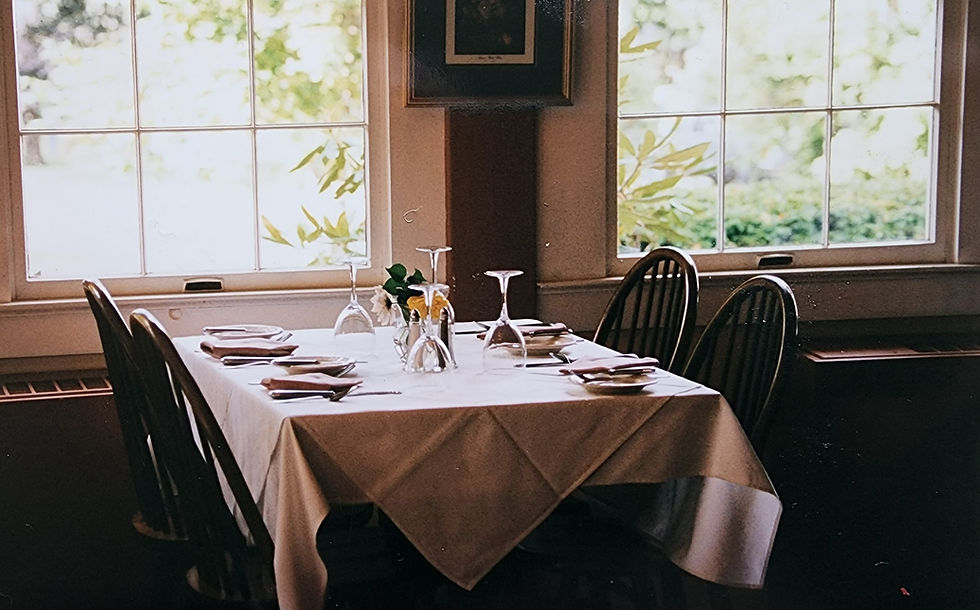Hospitality to the Hungry and Homeless
- steve waller

- Jun 17, 2025
- 2 min read
Updated: Aug 20, 2025

It’s the end of the shift. You’re outside having a smoke. Or a drink. Or both. You survived a stellar night. Unbelievable numbers! And there must have been a tipping full moon the way the servers talk!
The dishwasher comes out the back door, hauling the last trash bag from the kitchen. The top plastic lids ache to close but the dumpster is brimming over, full of table scraps, meat trimmings, hardened bread, potato peelings, chicken bones, dropped or burnt food, unfinished entrees, vegetable trimmings, rotting apples, molding cheese and salad greens.
You pull out your cell and search for restaurant waste. You end up at website after website and learn that food waste is the flip side of the hunger crisis coin. And that’s one big coin. Granted, restaurants are not the only guilty party. Food is wasted all along the chain, from farms to transportation to households to grocery stores and storage facilities. Nonetheless, do what you can.
But what can you do? First, you can come to grips with the fact that good restaurants are part of the community, and that not all members of the community are doing well enough to eat at your establishment—or in some cases, even to live indoors. Then, you can endeavor to get some of that wasted food to the hungry and the homeless, which will reduce the size of your dumpster, which in turn reduces your cost.
When it comes to the hungry and the homeless, if you have extra to-go boxes, when you encounter someone living on the street, offer them up. And, if you don’t have any to-go food and you really want to help, nothing stops you from buying some food and bringing it to them.
In addition, you can always volunteer some of your time or donate products or other foodstuffs to a shelter.
Snapshot
We were on our way home from our favorite steakhouse in Boston. Boylston Street was hopping, per usual. On our way to the car, we passed an office building with a recessed front entrance. A homeless person sat partially hidden in the shadows. As I reached into my pocket for a small bill and some change, Karen stopped me.
“Don’t give them money. They will use it for the wrong thing. If you want to help, give them your to-go container.”
That was my first experience in “doing the right thing” with some forethought. But it didn’t end there. I decided to volunteer at the Pine Street Inn, working the buffet line serving food to the city homeless. Humbling as it was, I never looked at someone who was homeless or hungry the same.
The last word here goes to Muhammad Ali: “Wars of nations are fought to change maps. But wars of poverty are fought to map change.”




Comments